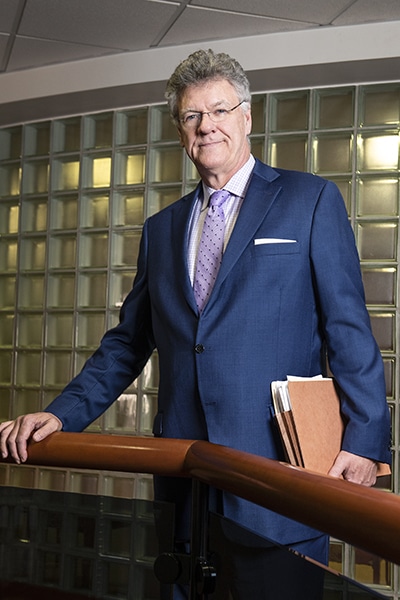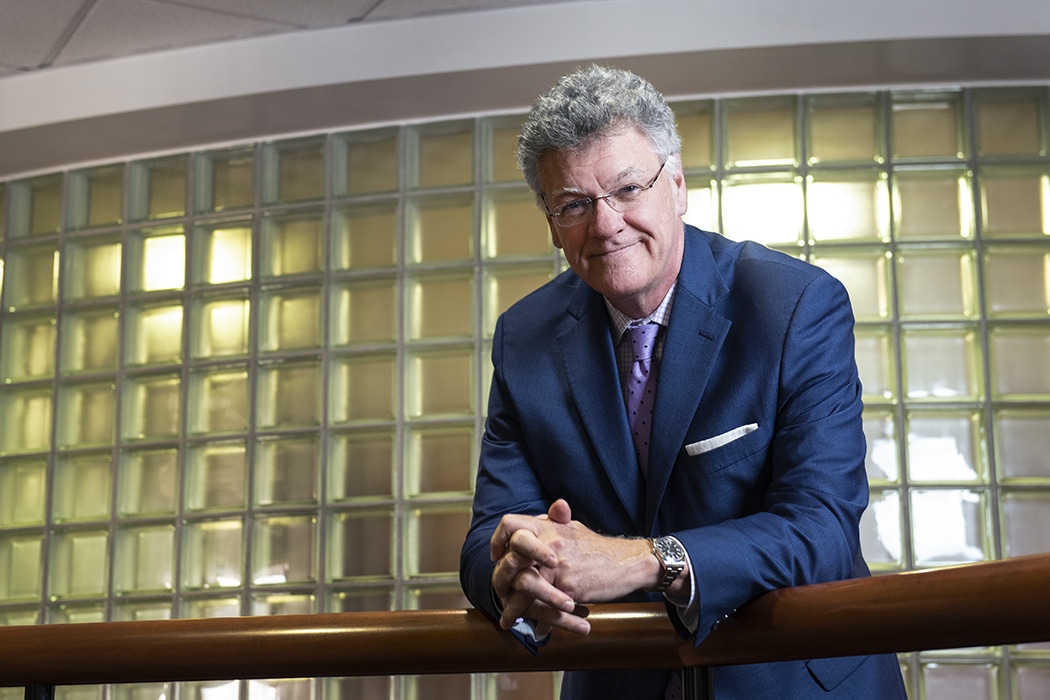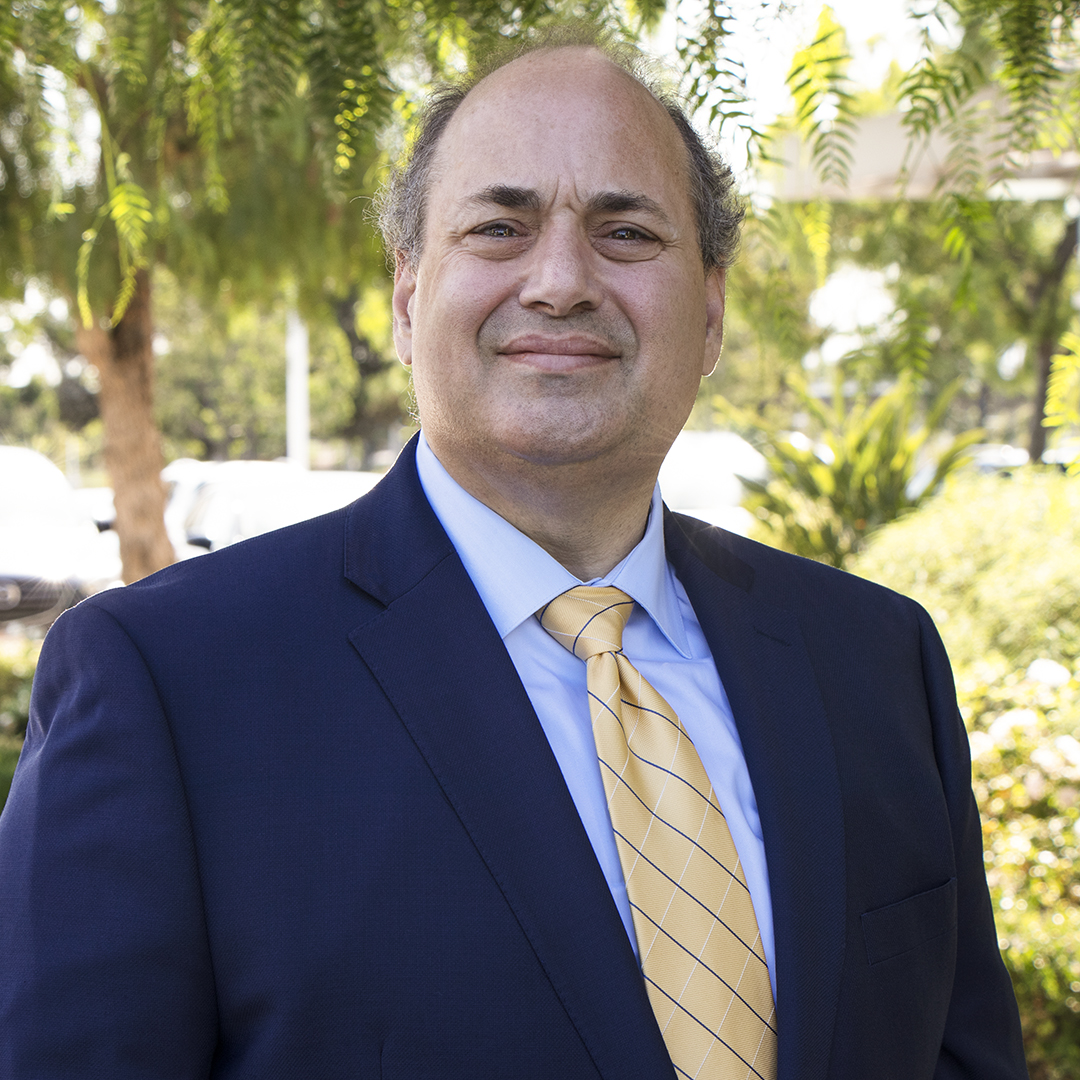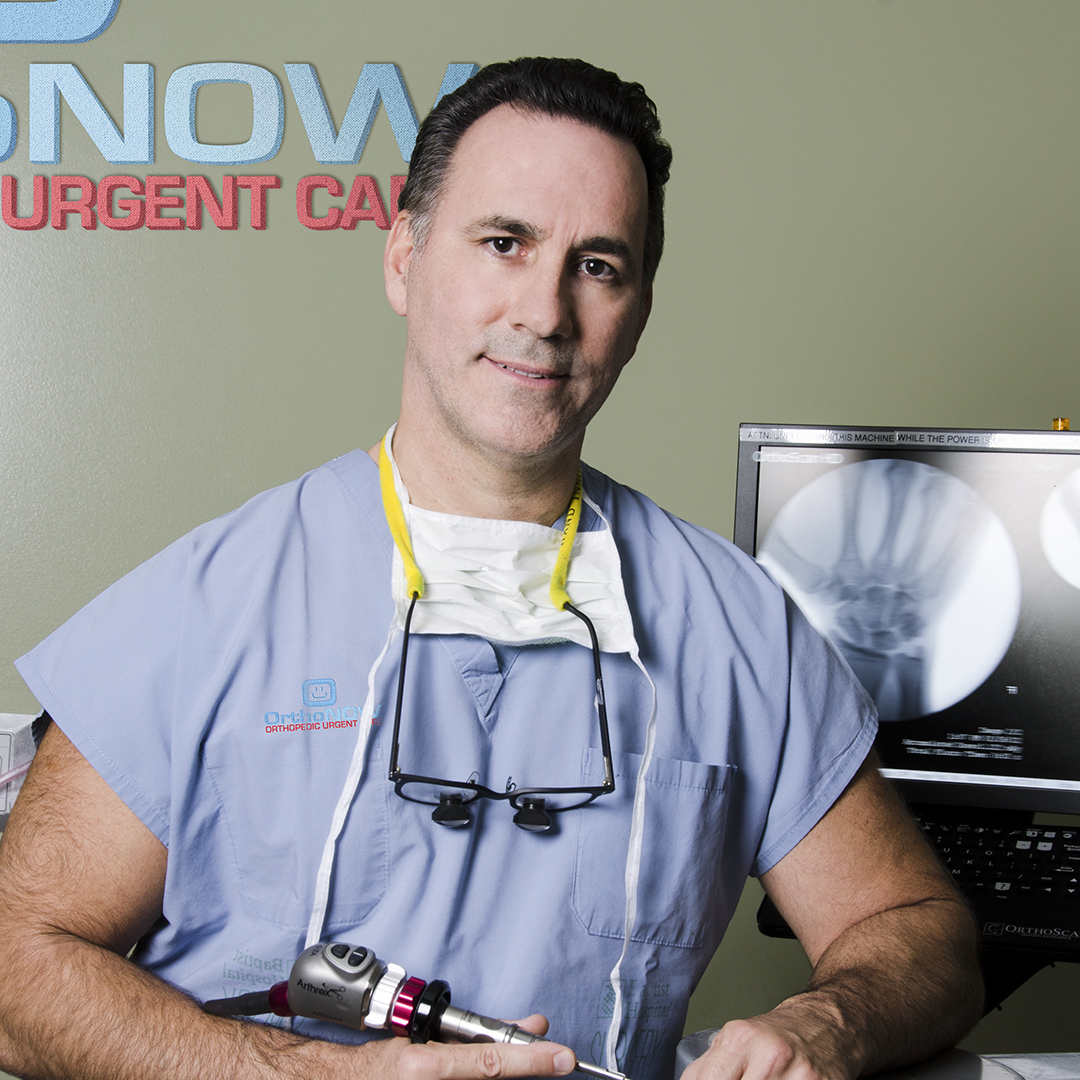When Rick Kidwell joined the University of Pittsburgh Medical Center (UPMC) as senior associate counsel in 2004, he already had more than twenty-six years of law experience under his belt. Throughout that time, Kidwell carved a name for himself within healthcare law as not only an esteemed and practiced lawyer but as a trusted advisor for patients, doctors, and stakeholders throughout the system.
“I see my role as one that’s evolved into more of a counselor,” he says. “I provide legal advice on dealing with adversaries and claims or things of that nature. Now, it’s more about listening to people or providers about their troubles and offering them insights on how we can work everything out.”
While Kidwell’s tenure taught him a great deal about law, it taught him even more about human nature. He no longer saw himself as a problem-solver solely using his legal expertise. Instead, he became adept at using a different tool—perhaps a more powerful tool—to mend issues: empathy.
Practicing with the Craft
Fresh out of law school, Kidwell joined a private firm in Baltimore called Miles & Stockbridge. Over the first fifteen years of his professional career, he handled myriad cases mostly surrounding product liability work, but he quickly realized that rare medical malpractice cases piqued his interest most. So, when he was referred to Johns Hopkins for a position as managing attorney for claims and litigation, he jumped at the chance to interview with them.
“When this opportunity came along, I plunged right into it. I guess you could say I was thrown into the deep end, but because I’m so tall, I didn’t drown,” jokes Kidwell—who, by the way, is six and a half feet tall.

“Once there, I found that doctors teach medicine as much as they practice it,” Kidwell continues. “It gave me a greater appreciation for the pressures they work under and an understanding of medical malpractice cases because nothing is black and white. It’s tough to always know the answer in real time and much easier to see something in retrospect.”
Kidwell happily took any chance to shadow a doctor in the emergency room or during a surgery. He learned about the circumstances that dictate specific decisions in an operating room, about the complex task of accurately reading x-rays, and the intricacies of treating patients based on their specific needs and complications. Naturally, these firsthand experiences subsequently informed Kidwell’s legal work.
“We have to convince juries to put themselves in the position of a doctor or nurse,” he says. “Show them that this is what we know, and this is what we can do about it at the time, but at the end of the day, we may not control the final result.”
Kidwell, who came to Johns Hopkins without a preconceived medical mind-set, discovered that, through these firsthand experiences, his ability to connect with patients, juries, doctors, and lawyers strengthened tenfold, making him a valuable asset to colleagues internally and externally.
“Rick Kidwell’s remarkable background as a trial lawyer, healthcare expert, and risk management executive provides him with the expertise to address a broad spectrum of legal and administrative issues,” John Conti, president and CEO of Dickie, McCamey & Chilcote, says of his colleague. “Our legal team endeavors to work seamlessly with Rick on a daily basis to efficiently resolve whatever question or challenge may arise.”
When Kidwell moved to UPMC almost eleven years later, he was delighted to discover that the organization upheld a similar atmosphere centered on learning. He immediately got to work building relationships with key partners so that the whole organization could work together better.

Above the Bottom Line
“The first thing I had to do was get my arms around the behemoth that is UPMC,” Kidwell remarks. This is no exaggeration—the organization is huge. Spanning across Pennsylvania and now with locations in New York, UPMC has more than 40 hospitals, 87,000 employees, and 5,500 beds.
Since 2004, UPMC has practically doubled in size. But even as the organization has experienced consistent growth over the years, Kidwell has made an effort to close the gaps between the sprawling campuses.
“I’ll get on the road and spend afternoons at different hospitals,” he explains. “I make sure that I attend meetings periodically in each of the hospitals, whether it’s a patient safety, risk management, or executive board meeting. I like to let them know that I’m here to work with them and keep those lines of communication open.”
In fact, to Kidwell, open communication is vital in ensuring that the human aspect of medicine shines through each step of the way—and he encourages his team to hold it in equally high regard. Much as doctors have prescheduled on-call weeks, Kidwell has adopted a system to have his team available 24/7 to provide legal advice and support.
“Physicians, nurses, and socials workers can pick up the phone and call one number to talk to a lawyer,” he explains. “Then it connects them instantly to one of us so we can answer any questions they have about decisions, issues, or emergency situations.”
The idea of the on-call system, Kidwell goes on to explain, is that it allows lawyers and healthcare professionals to work out problems in real time to find a solution rather than waiting until the problem potentially gets worse. Avoiding legal confrontations in the long run allows UPMC to protect its employees to better serve its clients.
“It gives patients and family members a sense of satisfaction, knowing that they’ve accomplished something to help other people.”
In this vein, Kidwell took communication a step further, founding a mediation program that encourages communication between patients or family members wronged in medical malpractice cases, the patient’s lawyer, and a UPMC lawyer like Kidwell.
“We have a mediator/facilitator help us try to resolve whatever issues there are in a nonadversarial, less confrontational, and much more efficient, less expensive way,” Kidwell says. “It gives us a chance to explain how things happened and assure them that it won’t happen again to somebody else. It gives patients and family members a sense of satisfaction, knowing that they’ve accomplished something to help other people.”
Since starting the program, the legal team settles nearly 90 percent of the cases it mediates. That means less time in court, less money spent by both parties, and more actionable solutions.
“It’s about finding common ground,” Kidwell says. “Disclosing any errors we make is the right thing to do, and it’s best to talk to people upfront, candidly and transparently, rather than sticking our head in the sand and ignoring something—or worse, covering it up.”
In total, Kidwell’s knack for harnessing the power of empathy has earned him accolades among peers and patients alike. Though the idea of helping, not hurting, seems simple, many in the healthcare industry walk a tightrope trying to bring this idea to life. But over the past forty-plus years of Kidwell’s career, he’s learned that staying balanced when it comes to the high-wire act of healing other people relies on employing a fundamental tactic: doing the right thing.
Honorable Mentions
Rick Kidwell’s mediation efforts have not only offered him recognition inside the various institutions at which he’s worked. He’s also been featured in two nonfiction books, Josie’s Story and The Immortal Life of Henrietta Lacks.
Both books, which tell stories of families who were involved in unique medical lawsuits, feature Kidwell’s thought leadership as he helped guide the families and remedy their situations.
On a flight back to Pittsburgh from Greece, Kidwell noticed a woman reading The Immortal Life of Henrietta Lacks. “Let me know when you get to page 225,” he told her, explaining that he was the lawyer featured in the narrative. At the end of the flight, the woman, having finished the book, excitedly asked if Kidwell would sign her copy.
Appropriately, he added a note to accompany his signature: “Always do the right thing.”
Dickie, McCamey is justly proud of its decades-long service to UPMC, a world renowned healthcare system. With a sustained focus on providing value, we embrace our role as the go-to firm for trial and appellate excellence, as well as a broad array of health care counseling matters.


